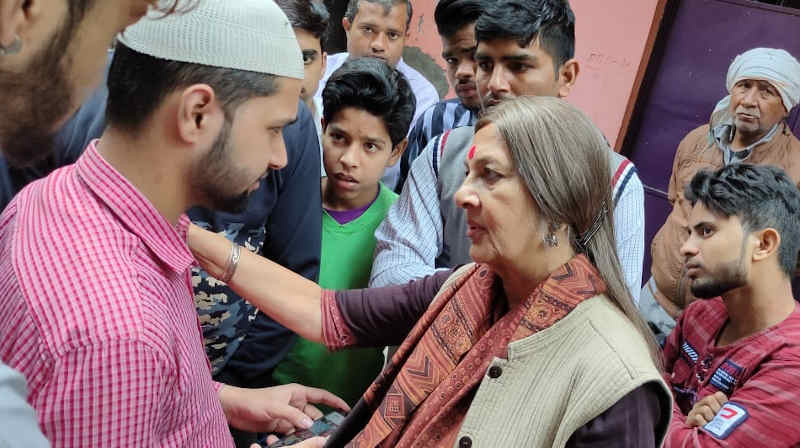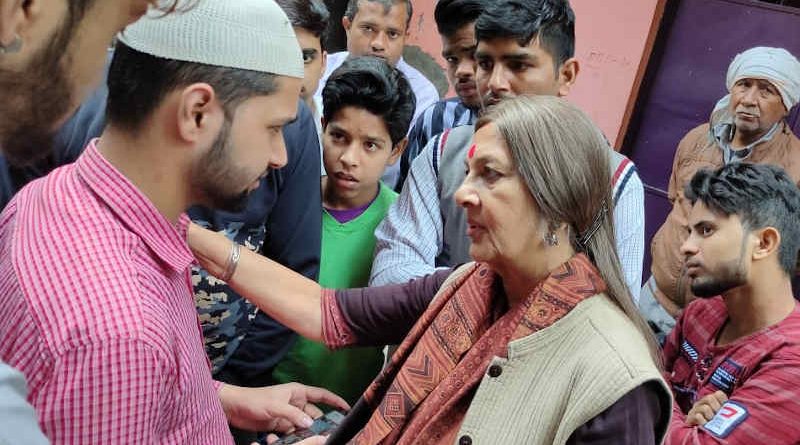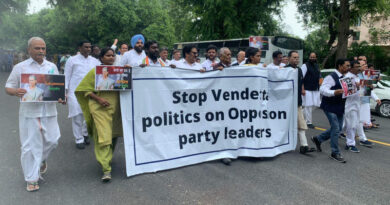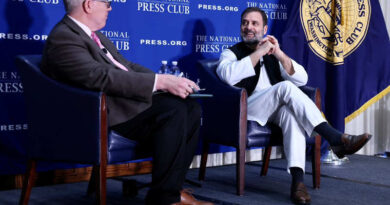Hijab Bans in Indian Schools Violate Religious Freedom: U.S. Official

Since such incidents of religious hatred have tacit approval of Modi and his government, the Indian bureaucrats – who are highly unskilled and corrupt – refute international condemnation without any reasoning.
By Rakesh Raman
As religious freedom violations are increasing under the government of Hindu prime minister (PM) Narendra Modi, the U.S. agencies and international human rights organizations constantly raise concerns.
Now, Muslim women in India’s Karnataka state – which is led by Modi’s Bharatiya Janata Party (BJP) – have been holding protests to demand the protection of their constitutional rights, including religious freedom. The protests are taking place as female students wearing hijabs are being denied entry to various colleges in the state.
In response, U.S. Ambassador-At-Large for International Religious Freedom (IRF) Rashad Hussain criticized the Indian authorities and advised that hijab bans in schools and colleges violate religious freedom and stigmatize and marginalize women and girls.
In a tweet on February 11, he said, “Religious freedom includes the ability to choose one’s religious attire. The Indian state of Karnataka should not determine permissibility of religious clothing. Hijab bans in schools violate religious freedom and stigmatize and marginalize women and girls.”
Religious freedom includes the ability to choose one’s religious attire. The Indian state of Karnataka should not determine permissibility of religious clothing. Hijab bans in schools violate religious freedom and stigmatize and marginalize women and girls.
— Amb. at Large for International Religious Freedom (@IRF_Ambassador) February 11, 2022
His comments came as a reaction to the incidents of hijab ban in schools and colleges in Karnataka, while the matter has reached the courts. As usual, the Indian authorities have dismissed the U.S. official’s reaction, saying that motivated comments on internal issues are not welcome.
Since such incidents of religious hatred have tacit approval of Modi and his government, the Indian bureaucrats – who are highly unskilled and corrupt – refute international condemnation without any reasoning.
Recently, a group of students and faculty members from the Indian Institute of Management (IIM) in Bangalore and Ahmedabad had urged Modi to speak up against the increasing incidents of hate speeches and communal violence in the country. In their open letter, 183 signatories – including 13 faculty members – stated that Modi’s silence over violent calls against specific communities of the country are encouraging the hate crimes.
Today, there are growing concerns over the continuous attacks on religious freedom in India under the Modi government. In a detailed report in November 2021, the United States Commission on International Religious Freedom (USCIRF) had said that religious freedom conditions in India continue their negative trajectory.
The USCIRF report – which cited a number of hate crimes against Muslims – added that the BJP government of PM Modi promotes Hindu nationalist policies resulting in systematic, ongoing, and egregious violations of religious freedom.
But Modi and his government ignore such observations because Modi himself is encouraging hate crimes surreptitiously for political advantage. With his divisive actions, Modi entices Hindu voters by creating an atmosphere of animosity against the minority communities including Muslims and Sikhs so that the majority of Hindus could elect him and his party in elections. Nearly 80% of voters in India are Hindus.
While Modi politicizes religion for electoral gains, USCIRF also recommended imposing targeted sanctions on individuals and entities responsible for severe violations of religious freedom by freezing those individuals’ or entities’ assets and/or barring their entry into the United States.
The USCIRF report says that the U.S. Congress should continue to raise religious freedom concerns in the U.S.-India bilateral relationship and highlight concerns through hearings, briefings, letters, and congressional delegations.
By Rakesh Raman, who is a national award-winning journalist and social activist. He is the founder of a humanitarian organization RMN Foundation which is working in diverse areas to help the disadvantaged and distressed people in the society.






